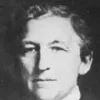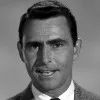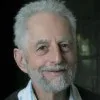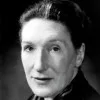Upon the education of the people of this country the fate of this country depends.
Benjamin Disraeli (1804-1881) English politician and author
Speech (1874-06-15), House of Commons, Minister of Education, Motion for a Select Committee
(Source)
Recorded in Parliamentary Debates (Comnmons), series 3, vol. 219, col. 1618, for 1874-06-15.
Quotations about:
priority
Note not all quotations have been tagged, so Search may find additional quotes on this topic.
But I have learned a thing or two: I know as sure as fate,
When we lock up our lives for wealth, the gold key comes too late.Will Carleton (1845-1912) American poet [William McKendree Carleton]
“The Ancient Miner’s Story,” st. 13, Harper’s Weekly (1884-03-22)
(Source)
Collected in Over the Hill to the Poor-house and Other Poems (1895).
Work destroys your soul by stealthily invading your brain during the hours not officially spent working; be selective about professions.
Nassim Nicholas Taleb (b. 1960) Lebanese-American essayist, statistician, risk analyst, aphorist
The Bed of Procrustes: Philosophical and Practical Aphorisms, “Preludes” (2010)
(Source)
Don’t say “When I have time I will learn,” lest you never have time.
[וְאַל תֹּאמַר לִכְשֶׁאִפָּנֶה אֶשְׁנֶה, שֶׁמָּא לֹא תִפָּנֶה:]
Hillel (1st C. BC-1st C. AD) Jewish sage, rabbi [הלל]
Mishna, Seder Nezikin [Order of Damages], Pirkei Avot [Chapters of the Fathers] 2:4
(Source)
(Source (Hebrew)). Alternate translations:Say not, When I have leisure I will study; perchance thou mayest not have leisure.
[tr. Taylor (1897)]Say not: ‘when I shall have leisure I shall study;’ perhaps you will not have leisure.
[tr. Gorfinkle (1913)]Say not: ‘when I shall have leisure I shall study;’ perhaps you will not have leisure.
[tr. Kulp]Do not say: When I can free myself [of my affairs] I shall learn (Torah); perhaps you will not free yourself.
[tr. Shraga Silverstein]Do not say, "When I will be available I will study [Torah]," lest you never become available.
[Open Mishnah]Do not say "When I have leisure, I will study," perhaps you will not have leisure.
[Source]Say not, "When I have free time I shall study"; for you may perhaps never have any free time.
CYCLOPS: I sacrifice to no one save myself and this belly, the greatest of deities; but to the gods, not I!
[ΚΥΚΛΩΨ: ἁγὼ οὔτινι θύω πλὴν ἐμοί, θεοῖσι δ᾽ οὔ,
καὶ τῇ μεγίστῃ, γαστρὶ τῇδε, δαιμόνων.]Euripides (485?-406? BC) Greek tragic dramatist
Cyclops [Κύκλωψ], l. 334ff (c. 424-23 BC) [tr. Coleridge (1913)]
(Source)
(Source (Greek)). Alternate translations:POLYPHEME:To no other God except myself,
And to this belly, greatest of the Gods,
I sacrifice.
[tr. Wodhull (1809)]CYCLOPS:To what other God but to myself
And this great belly, first of deities,
Should I be bound to sacrifice?
[tr. Shelley (1819)]CYCLOPS: I sacrifice to my great Self, sir Sprat,
And to no god beside -- except, that is,
My belly, greatest of all deities.
[tr. Way (1916)]CYCLOPS: I sacrifice to no god save myself --
And to my belly, greatest of deities.
[ed. Adams (1952)]CYCLOPS: I sacrifice to no one but myself -- never to the gods -- and to my belly, the greatest of divinities.
[tr. Kovacs (1994)]
The world would be much better off if the pains taken to analyze the subtlest moral laws were given to the practice of the simplest.
[Es stände besser um die Welt, wenn die Mühe, die man sich gibt, die subtilsten Moralgesetze auszuklüglen, zur Ausübung der einfachsten angewendet würde.]
Marie von Ebner-Eschenbach (1830-1916) Austrian writer
Aphorisms [Aphorismen], No. 104 (1880) [tr. Wister (1883)]
(Source)
(Source (German)). Alternate translation:The world would be in better shape if people would take the same pains in the practice of the simplest moral laws as they exert in intellectualizing over the most subtle moral questions.
[tr. Scrase/Mieder (1994)]
You deserve a longer letter than this; but it is my unhappy fate seldom to treat people so well as they deserve.
The reason some parents really enjoy their children is that they take the time to live with them.
Marcelene Cox (1900-1998) American writer, columnist, aphorist
“Ask Any Woman” column, Ladies’ Home Journal (1946-04)
(Source)
A poor man defended himself when charged with stealing food to appease the cravings of hunger, saying, the cries of the stomach silenced those of the conscience.
Marguerite Gardiner, Countess of Blessington (1789-1849) Irish novelist [Lady Blessington, b. Margaret Power]
(Attributed)
(Source)
Quoted, without citation, in R. R. Madden, The Literary Life and Correspondence of the Countess of Blessington, Vol. 1 (1855).
It’s simply a national acknowledgement that in any kind of priority, the needs of human beings must come first. Poverty is here and now. Hunger is here and now. Racial tension is here and now. Pollution is here and now. These are the things that scream for a response. And if we don’t listen to that scream — and if we don’t respond to it — we may well wind up sitting amidst our own rubble, looking for the truck that hit us — or the bomb that pulverized us. Get the license number of whatever it was that destroyed the dream. And I think we will find that the vehicle was registered in our own name.
Rod Serling (1924-1975) American screenwriter, playwright, television producer, narrator
Commencement Address, University of Southern California (17 Mar 1970)
(Source)
In Anne Serling, As I Knew Him: My Dad, Rod Serling, ch. 28 (2013).
Don’t fool yourself that important things can be put off till tomorrow; they can be put off forever, or not at all.
Mignon McLaughlin (1913-1983) American journalist and author
The Neurotic’s Notebook, ch. 10 (1963)
(Source)
We have now, it seems a National Bible Society, to propagate King James Bible, through all Nations. Would it not be better, to apply these pious Subscriptions, to purify Christendom from the corruptions of Christianity; than to propagate those Corruptions in Europe, Asia, Africa and America!
John Adams (1735-1826) American lawyer, Founding Father, statesman, US President (1797-1801)
Letter to Thomas Jefferson (4 Nov 1816)
(Source)
After the founding of the American Bible Society (11 May 1816).
A man is fit for neither business nor pleasure, who either cannot, or does not, command and direct his attenti0on to the present object, and, in some degree, banish for that time all other objects from his thoughts. If at a ball, a supper, or a party of pleasure, a man were to be solving, in his own mind, a problem in Euclid, he would be a very bad companion, and make a very poor figure in that company; or if, in studying a problem in his closet, he were to think of a minuet, I am apt to believe that he would make a very poor mathematician. There is time enough for everything in the course of the day, if you do but one thing at once; but there is not time enough in the year, if you will do two things at a time.
Lord Chesterfield (1694-1773) English statesman, wit [Philip Dormer Stanhope]
Letter to his son, #121 (14 Apr 1747)
(Source)
The importance to the writer of first writing must be out of all proportion of the actual value of what is written.
There are two kinds of people in one’s life — people whom one keeps waiting — and the people for whom one waits.
S. N. Behrman (1893-1973) American playwright, screenwriter, biographer, writer [Samuel Nathaniel Behrman]
Biography, Act 1 [Feydak] (1933)
(Source)
Life is not made up of dramatic incidents — even the life of a nation. It is made up of slowly evolving events and processes, which newspapers, by a score of different forms of emphasis, can reasonably attempt to explore from day to day. But television news jerks from incident to incident. For the real world of patient and familiar arrangements, it substitutes an unreal world of constant activity, and the effect is already apparent in the way which the world behaves. It is almost impossible, these days, to consider any problem or any event except as a crisis; and, by this very way of looking at it, it in fact becomes a crisis.
If you bungle raising your children I don’t think whatever else you do well matters very much.
Jacqueline Kennedy Onassis (1929-1994) First Lady of the United States (1961-1963), book editor, celebrity
Interview with Sander Vanocur, NBC News (1 Oct 1960)
(Source)
You must look into people, as well as at them. Almost all people are born with all the passions, to a certain degree; but almost every man has one prevailing one, to which the others are subordinate. Search every one for that ruling passion; pry into the recesses of his heart, and observe the different workings of the same passion in different people; and when you have found out the prevailing passion of any man, remember never to trust him where that passion is concerned. Work upon him by it, if you please; but be upon your guard yourself against it, whatever professions he may make you.
Lord Chesterfield (1694-1773) English statesman, wit [Philip Dormer Stanhope]
Letter to his son, #112 (4 Oct 1746)
(Source)
For to a great man both things are needful; to treat trifles as trifles and important matters as important matters.
[Denn zu einem großen Manne gehört beides: Kleinigkeiten als Kleinigkeiten, und wichtige Dinge als wichtige Dinge zu behandeln.]
Gotthold Lessing (1729-1781) German playwright, philosopher, dramaturg, writer
Hamburgische Dramaturgie [Hamburg Dramaturgy], Essay 34, 1767-08-25 (1767-1769) [tr. Zimmern (1890)]
(Source)
(Source (German)). Alternate translations:For the great man does both, that is, he treats trivialities as trivialities and important things as important things.
[tr. Arons/Figal]It is the mark of great people to treat trifles as trifles and important matters as important.
[Source]
Love and compassion are necessities, not luxuries. Without them, humanity cannot survive. With them, we can make a joint effort to solve the problems of the whole humankind.
To do a job effectively, one must set priorities. Too many people let their “in” basket set the priorities. On any given day, unimportant but interesting trivia pass through an office; one must not permit these to monopolize his time. The human tendency is to while away time with unimportant matters that do not require mental effort or energy. Since they can be easily resolved, they give a false sense of accomplishment. The manager must exert self-discipline to ensure that his energy is focused where it is truly needed.
True, we have to hate evil; else we’re sentimental. But if we hate evil more than we love the good, we become damn good haters, and of those the world already has too many.
William Sloane Coffin, Jr. (1924-2006) American minister, social activist
Credo, “Faith, Hope, and Love” (2004)
(Source)
KATE: Oh, Harry, you and your sublime religion.
SIR HARRY: My religion? I never was one to talk about religion, but —
KATE. Pooh, Harry, you don’t even know what your religion was and is and will be till the day of your expensive funeral. One’s religion is whatever he is most interested in, and yours is Success.
J. M. Barrie (1860-1937) Scottish novelist and dramatist [James Matthew Barrie]
The Twelve-Pound Look (1910)
(Source)
A strict observance of the written laws is doubtless one of the high duties of a good citizen: but it is not the highest. The laws of necessity, of self-preservation, of saving our country when in danger, are of higher obligation. To lose our country by a scrupulous adherence to written law, would be to lose the law itself, with life, liberty, property & all those who are enjoying them with us; thus absurdly sacrificing the end to the means.
Thomas Jefferson (1743-1826) American political philosopher, polymath, statesman, US President (1801-09)
Letter (1810-09-20) to John B. Colvin
(Source)
What is so advantageous to the people as liberty? which is sought out and preferred to everything, not only by men, but even by the beasts.
[Quid tam populare quam libertas? Quam non solum ab hominibus verum etiam a bestiis expeti atque omnibus rebus anteponi videtis.]
Marcus Tullius Cicero (106-43 BC) Roman orator, statesman, philosopher
De Lege Agraria [On the Agrarian Law], Oration 2 “Contra Rullum,” sec. 9 (63 BC) [tr. Yonge (1856)]
(Source)
(Source (Latin)). Alternate translation:What is so beneficial to the people as liberty, which we see not only to be greedily sought after by men, but also by beasts, and to be preferred to all things.
[Source (1884)]



























